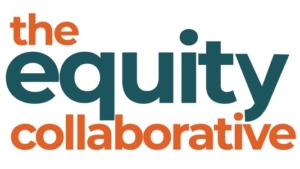Educational equity services supporting academic and personal development for every child.
Learn more about our educational equity services for DEI initiatives—including team development, equity coaching, and executive support.
Learn more about our educational equity services for DEI initiatives—including team development, equity coaching, and executive support.
An equity assessment provides context for an organization, school, or school district to create actionable, achievable, and sustainable goals rooted in the experiences of students, families, and educators.
Our Systemic Equity Assessment uses both quantitative data and qualitative interviews to generate a report that clients can use to:
We partner with schools, school districts, and organizations to compile data that they most likely already track and analyze it through an equity lens. Furthermore, we create goals for future student achievement data that reflect current equity and opportunity gaps.
Every client receives a uniquely tailored proposal, and we’ve had great success implementing these three institutes virtually.
The Equity Collaborative will lead participants in a series of equity learning sessions that will help develop their racial literacy and increase their commitment to equity. The sessions are based on the belief that helping adults to develop an equity-centered approach to everything they do is the key to achieving equity in school environments. This institute is focused on finding common definitions of equity, oppression, and culturally responsive actions, as well as developing an approach to grow, change, and better serve our most marginalized students and families. Participants should leave the series with a commitment to new forms of practice that will enhance equity in their school. The content of the learning sessions can be customized to include any combination of the following topics from our core learning series:
This institute is our introduction to Equity-Centered Leadership and Coaching, one of our primary practices for creating and supporting systemic change. We believe effective coaching is the key to supporting adults responsible for achieving equity in our schools. This institute begins with a focus on the two skills we believe make for strong coaching: listening across differences and asking questions that promote growth and change. Equity leadership requires skill and strategy to support educators in changing their practice. Developing an equity lens to analyze inequities is inadequate to bring about change, and pointing out inequities without providing supported solutions is a sure way to build up resistance to change efforts. Every learning institution can benefit from a set of skilled equity leaders who work horizontally across departments and schools to interrupt inequity and build more supportive learning environments. These leaders are key to implementing equity change and responding to inevitable resistance and rough spots. This series can be four or six sessions depending on whether the client needs assistance with team leadership. The content of the sessions could include any of the following:
This institute is our series for advanced conversations about equity, all driven through an approach that turns critical race theory into practices for building equitable learning environments. The sessions focus on applying practice strategies for interrupting systemic racism and creating more equitable learning environments. These conversations are for equity practitioners who are ready to move from changes in their own practice to changes that interrupt the existing system of schooling.

We work at every level of the educational system, and we approach every interaction as a coaching opportunity.
As a result, we are constantly adapting our work to meet the needs of every client and the people who make up their organization.
The Equity Collaborative will partner and provide equity-focused Executive Alignment Leadership Coaching to any identified district/school leader to lead toward identified district-wide and school-wide goals for improved student performance. We will focus on developing the district and school leaders’ skill, knowledge, and capacity to support the staff in becoming Culturally Competent. The job-embedded coaching will offer frameworks and align customizable tools to help district and school leaders listen to the school communities that they serve. These tools will help identify and assess the ways classroom structure, school climate, and teaching practices shape and codify policies and actions to reach the identified district- and school-wide goals.
In order for district and school leaders to translate strategic plans into transformational change at the classroom level, educational leaders must develop their will, skill, knowledge, capacity, and emotional intelligence to be able to influence teacher practice in becoming culturally competent educators. This series of workshops will employ a coaching-based approach for district and school leaders to develop and lead effective instructional conversations focused on reaching equitable outcomes. Educators have to be skillful in talking about equity—and coaching towards it—in a way that allows others to embrace change. These skills will help support the social, emotional, and intellectual development of students who have traditionally been underserved. We use coaching techniques to develop and strengthen school leaders’ work in becoming more effective educators, teammates, and leaders for equity.
We’ve developed a two-day workshop designed to introduce key concepts and practices to move a district and school system toward equitable outcomes for underserved students and families. This workshop supports educators to deepen their understanding of how race and culture influence human behaviors—and thus, teaching and learning. The workshop also gives staff opportunities to reflect on their own role in perpetuating institutional oppression. It explores using an equity lens to examine school instructional practices and learning environments. The workshop is designed to support district and school leaders to develop internal capacity for equity leadership. Additionally, the program design allows schools to customize the implementation to fit the needs of their district and schools, as well as the skills of their school team leaders. A scholarly review of the impact of our Racial Equity Institute was published in the Journal of Community Psychology.
We’re experts in fostering cultures of collaboration and inquiry while designing structures that promote these habits of mind and work.
The Culturally Responsive Instruction Workshops will help educators:
This series employs a coaching-based approach to helping educators develop and lead effective instructional conversations focused on reaching equitable outcomes. We work to replace current practices with new relational and instructional practices that support the social, emotional, and intellectual development of students who have traditionally been underserved. As coaches, the educators we work with must be able to utilize and model listening and reflective questioning skills that allow them to develop as culturally responsive teachers. Participants will examine their coaching and facilitation styles with a focus on educational equity by developing and practicing specific coaching skills.
Often, the most effective equity change work is based in Engaging Student Voice. The authentic voice of students can be used to inform everything from high-level policy changes to classroom practices. The key is to engage students in a meaningful way with facilitation that helps them analyze their schooling experience and explore possibilities for change. The Students’ Six model engages students in providing staff development on culturally responsive instruction. Arts-based student engagement workshops produce tools that can be used to promote reflection and change among school staff. Student focus groups offer an easy opportunity to gather feedback and guidance on a wide range of topics.

Find out more about some of the resources we offer on this site.
